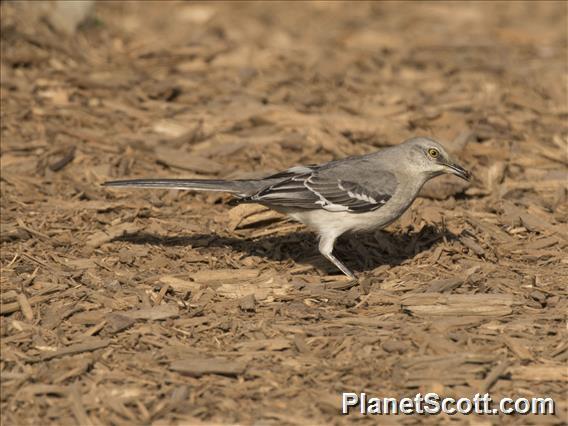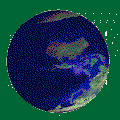Northern Mockingbird (Mimus polyglottos)

Northern Mockingbird (Mimus polyglottos)

Northern Mockingbird (Mimus polyglottos)


×



Northern Mockingbird (Mimus polyglottos)

Northern Mockingbird (Mimus polyglottos)
About Northern Mockingbird (Mimus polyglottos)
- Kingdom: Animals
- Phylum: Chordates
- Class: Birds
- Order: Perching Birds
- Family: Mockingbirds, Thrashers, and Allies
The northern mockingbird is a mockingbird commonly found in North America, of the family Mimidae. The species is also found in some parts of the Caribbean, as well as on the Hawaiian Islands. It is typically a permanent resident across much of its range, but northern mockingbirds may move farther south during inclement weather or prior to the onset of winter. The northern mockingbird has gray to brown upper feathers and a paler belly. Its tail and wings have white patches which are visible in flight.
Source: Wikipedia
Trips
Visits
-
1995-06-15
Mission - My Backyard, United States of America× -
×
-
2006-04-16
Kern National Wildlife Refuge, United States of America× -
2007-01-05
Bernal Hill, United States of America× -
2007-04-07
Torrey Pines State Reserve, United States of America× -
×
-
2008-01-06
Singayta, Mexico× -
2008-01-26
Mission Creek, United States of America× -
2008-02-17
San Jose del Cabo - Estuary, Mexico× -
2008-04-26
Pier 94, United States of America× -
2011-05-25
Mission - My New Backyard, United States of America× -
2011-07-10
Santa Fe River, United States of America× -
2011-07-12
Seacrest Scrub Natural Area, United States of America× -
2012-06-25
Bernal Hill, United States of America× -
2012-09-09
Coachella Valley Preserve, United States of America× -
2012-12-06
Solano County Farmlands, United States of America× -
2013-03-23
Bayview Park, United States of America× -
2013-03-30
Heron's Head Park, United States of America× -
2013-04-14
Austin, United States of America× -
2013-04-15
Balcones Canyonlands NWR--Refuge HQ (Travis Co.), United States of America× -
2013-04-17
Brazoria NWR (UTC 108), United States of America× -
2013-04-19
Bolivar Peninsula, United States of America× -
2013-04-19
Anahuac NWR (UTC 049), United States of America× -
2013-04-20
Attwater Prairie Chicken National Wildlife Refuge, United States of America× -
2013-04-21
Alemany Community Garden, United States of America× -
2013-10-06
Bernal Hill, United States of America× -
2014-01-19
Santo Domingo - El Embajador Hotel Grounds, Dominican Republic× -
2014-01-21
Puerto Escondido, Dominican Republic× -
2014-01-24
Santo Domingo - Botanical Gardens, Dominican Republic× -
2014-01-26
Los Haitises National Park, Dominican Republic× -
2014-03-08
Tule Elk State Reserve, United States of America× -
2014-03-08
Pyramid Lake, United States of America× -
2014-03-09
Hahamongna Watershed Park, United States of America× -
2014-03-15
Alemany Community Garden, United States of America× -
2014-03-22
Baker Beach, United States of America× -
2014-04-26
Bernal Hill, United States of America× -
2014-05-09
Rodeo, United States of America× -
2014-05-10
Pinery Canyon Rd. (grasslands section only), United States of America× -
2014-06-01
India Basin Shoreline Park, United States of America× -
2014-06-22
Redwood Valley, United States of America× -
2014-09-23
Redwood Valley, United States of America× -
×
-
2015-01-03
Woodward Park, United States of America× -
2015-01-14
Bernal Hill, United States of America× -
2015-01-20
Arrowhead Marsh, United States of America× -
×
-
×
-
×
-
×
-
×
-
×
-
×
-
×
-
×
-
×
-
×
-
×
-
×
-
×
-
×
-
×
-
×
-
×
-
×
-
×
-
×
-
×
-
×
-
×
-
×
-
×
-
×
-
×
-
×
-
×
-
×
-
×
-
×
-
×
-
×
-
×
-
×
-
×
-
×
-
×
-
×
-
×
-
×
-
×
-
×
-
×
-
×
-
×
-
×
-
×
-
×
-
×
-
×
-
×
-
×
-
×
-
×










